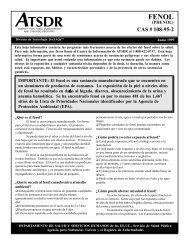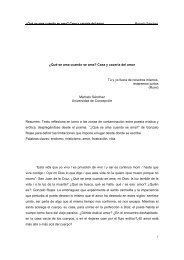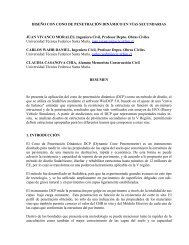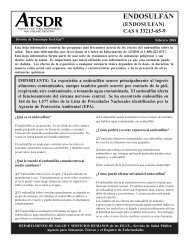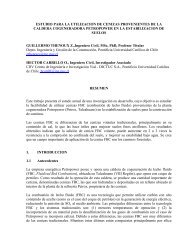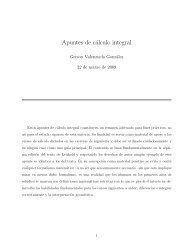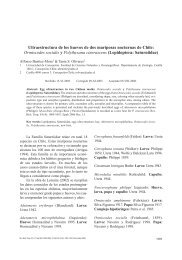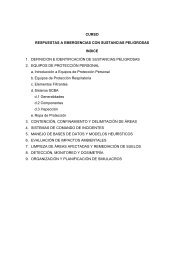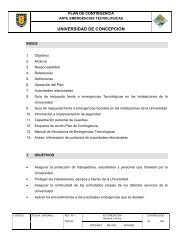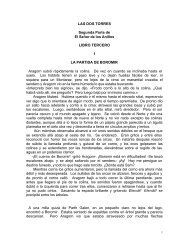Beer : Health and Nutrition
Beer : Health and Nutrition
Beer : Health and Nutrition
You also want an ePaper? Increase the reach of your titles
YUMPU automatically turns print PDFs into web optimized ePapers that Google loves.
The Impact of Alcohol on <strong>Health</strong> 125<br />
come through the diet. The quantity of cholesterol produced is increased in proportion<br />
to the level of saturated fatty acids in the diet (polyunsaturated fatty acids reduce<br />
blood cholesterol), <strong>and</strong> also the trans saturated fatty acids, i.e. those that are produced<br />
industrially by catalytic hydrogenation (Krisetherton 1995). High sugar intake can lead<br />
to high formation of saturated fats in the body. Indeed, any imbalance in metabolism<br />
such that there is an excess of calories over those needed to sustain the body will lead<br />
to an accumulation of fat. Obesity, hypertension, diabetes, sedentary living <strong>and</strong> the use<br />
of cigarettes all increase the risk of atherosclerosis.<br />
As cholesterol <strong>and</strong> other lipids such as the triglycerides are insoluble in aqueous<br />
systems, they are transported through the body by combination with proteins, as lipoproteins.<br />
The principal carrier of cholesterol is low-density lipoprotein (LDL) <strong>and</strong> there<br />
is a strong positive correlation between its level <strong>and</strong> the risk of atherosclerosis. Hence<br />
LDL is frequently referred to as ‘bad cholesterol’.<br />
A lower percentage (20–30%) of the blood cholesterol is in the form of high-density<br />
lipoprotein (HDL), which is responsible for transporting cholesterol away from the arteries<br />
to the liver where it is metabolised. This role has caused HDL to be named ‘good<br />
cholesterol’, such that high levels of HDL appear to afford protection against heart attack.<br />
Thus there is an inverse correlation between levels of HDL <strong>and</strong> atherosclerosis.<br />
There is now a plethora of papers arguing that moderate consumption of alcohol<br />
counters coronary heart disease [see, for example, Dyer et al. 1977; Hennekens et al.<br />
1978; Ramsey 1979; Marmot et al. 1981; Gordon & Kannel 1983 (the Framingham<br />
study); Kozarevic et al. 1983; Yano et al. 1984; Moore & Pearson 1986; Klatsky et al.<br />
1992; Maclure 1993; Verschuren 1993]. Alcohol causes a lowering of LDL cholesterol<br />
in the plasma <strong>and</strong> an increased level of HDL cholesterol (HDL 2 <strong>and</strong> HDL 3 ) <strong>and</strong> apolipoproteins<br />
A-I <strong>and</strong> A-II (Clevidence et al. 1995; Goldberg et al. 1995; Jansen et al.<br />
1995; Parker et al. 1996).<br />
Alcohol also appears to lower the risk of blood clotting by reducing the level of<br />
brinogen in blood plasma (Stefanick et al. 1995) <strong>and</strong> lessening the tendency of blood<br />
platelets to aggregate (Renaud et al. 1992). The bene ts apply to both men <strong>and</strong> women<br />
(Nanchahal et al. 2000).<br />
Doyens of the eld have included Arthur Klatsky in Oakl<strong>and</strong>, California, Norman<br />
Kaplan of the University of Texas Southwestern Medical Center, <strong>and</strong> Sir Richard Doll<br />
in Oxford, Engl<strong>and</strong>.<br />
The phenomenon has taken the name the ‘French paradox’, on account of the unexpectedly<br />
low risk of cardiovascular disease in a country noted for its intake of very fatty<br />
foods. We can look back nearly two centuries to the rst noting of this effect, when<br />
an Irish doctor, Samuel Black, remarked on the much greater incidence of angina in<br />
France as opposed to Irel<strong>and</strong>, which he believed was ascribable to ‘the French habits<br />
<strong>and</strong> modes of living, coinciding with the benignity of their climate <strong>and</strong> the peculiarity<br />
of their moral affections’ (Black 1819). The occurrence is now sometimes called



